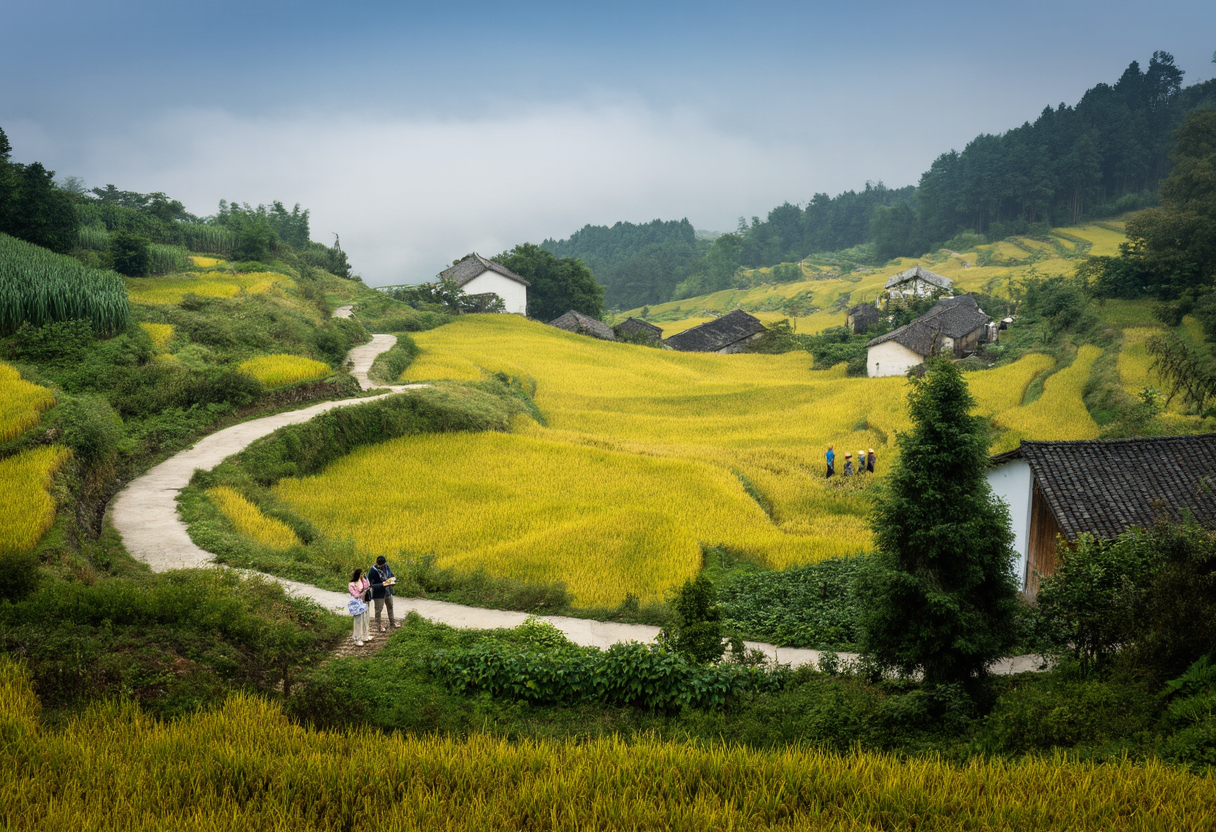Exploring the Untapped Potential of Rural Tourism: Strategies for Growth
Rural tourism is gaining traction as a viable alternative to traditional travel. By focusing on the unique offerings of rural areas, this emerging sector not only boosts local economies but also promotes cultural heritage. This article delves into the strategies necessary for thriving in rural tourism, ensuring these communities benefit from sustainable practices while attracting diverse visitors.
The Rise of Rural Tourism
In recent years, the conversation surrounding rural tourism has shifted dramatically. This rising interest is a response to the overcrowding in urban travel hotspots and the increasing desire for authentic experiences. Rural tourism offers unique encounters with nature, local cultures, and traditions that are often overlooked. By venturing into rural locales, travelers not only explore new environments but also contribute to the local economies. Consequently, rural tourism becomes a compelling alternative that benefits both visitors and communities. It’s pivotal to understand the dynamics that drive this form of travel in today's context, including social emotions and changing consumer preferences. Moreover, communities that embrace rural tourism can develop sustainable practices that protect their heritage while reaping economic rewards. This potential opens doors for locals and travelers alike, urging a closer look at this burgeoning sector.
Understanding Consumer Trends
The consumers of rural tourism are diverse, spanning various demographics and interests. Many seek solace from the hustle and bustle of city life, craving experiences that align with mental well-being and personal growth. Insight into these consumer behaviors and preferences is crucial for rural tourism operators looking to succeed. For instance, wellness tourism is closely linked to rural destinations, tapping into the emotional needs for relaxation and reconnection with nature. In addition, there’s a notable trend of tourists interested in agricultural experiences, from farm stays to organic food tours. Recognizing these evolving trends allows rural tourism providers to tailor offerings that not only attract visitors but also resonate with their values and interests. Maintaining awareness of changes in visitor motivations can significantly enhance the appeal of rural tourism, ensuring a steady flow of guests eager for authentic interactions.
Challenges and Opportunities
While the potential for rural tourism is significant, it is not without its challenges. Infrastructure development poses a critical hurdle, as many rural areas lack the essential amenities that travelers expect. Accessibility remains a central issue; without proper transportation, the appeal of these destinations diminishes. However, this challenge also presents an opportunity for growth. Investments in infrastructure can lead to improved services not only for tourists but for local residents as well. Furthermore, the advent of remote work has allowed individuals to explore rural tourism during traditional work days, expanding the market for these areas. Innovative marketing strategies can also play a role; rural tourism should be portrayed not merely as a getaway but as a unique lifestyle choice that resonates with modern travelers seeking mindfulness and connection. By addressing these challenges head-on, rural tourism can cultivate a sustainable model beneficial for both local economies and global travelers.
Marketing Strategies for Rural Tourism
Effective marketing is essential for the prosperity of rural tourism. Digital platforms present unique opportunities to showcase what rural areas have to offer. Engaging social media campaigns can highlight authentic experiences, customer testimonials, and picturesque landscapes that captivate potential visitors. Collaborating with influencers who resonate with rural tourism themes can significantly enhance visibility and engagement. Moreover, leveraging SEO strategies to target relevant keywords can improve online discoverability. This is especially crucial given that travelers often conduct extensive online research before making decisions. Building an appealing narrative around rural tourism, encompassing local culture, stories, and landscapes, can create compelling content that encourages visits. By crafting targeted campaigns and utilizing the power of social media, rural tourism can elevate its profile, attract diverse demographics, and stimulate economic growth.
Sustainability in Rural Tourism
Sustainability is increasingly becoming a focal point in the tourism sector, and rural tourism is no exception. Emphasizing eco-friendly practices can significantly enhance the attractiveness of rural destinations. Implementing sustainable tourism practices not only helps preserve the natural environment but also enriches the cultural heritage of local communities. Tourists today are more conscience-driven and often prefer destinations that align with their values, making sustainability a key selling point for rural tourism. Encouraging local sourcing, minimizing waste, and promoting responsible behaviors among visitors can create a more sustainable tourism model. The synergy between sustainability and rural tourism can foster deeper connections between travelers and the environment, leading to a more enriching experience for all. In this regard, rural tourism holds the key to fostering long-lasting, meaningful connections with both nature and local cultures.
Future Outlook of Rural Tourism
The future of rural tourism appears promising, with increasing awareness and interest driving growth. As travelers increasingly seek out destinations that offer authentic experiences away from the crowds, rural tourism stands at the forefront of this trend. Given its vast potential for cultural and economic enrichment, many rural areas are expected to embrace this tourism model. The convergence of technological advancements and growing consumer preferences for unique experiences will likely reshape the landscape of rural tourism in the coming years. With the right strategies focused on sustainability, consumer understanding, and innovative marketing, rural tourism can thrive. It is an exciting time for rural destinations as they position themselves within the global travel ecosystem. Ultimately, the call to both travelers and communities is to recognize the rich offerings of rural tourism, fostering harmony between exploration and preservation.
